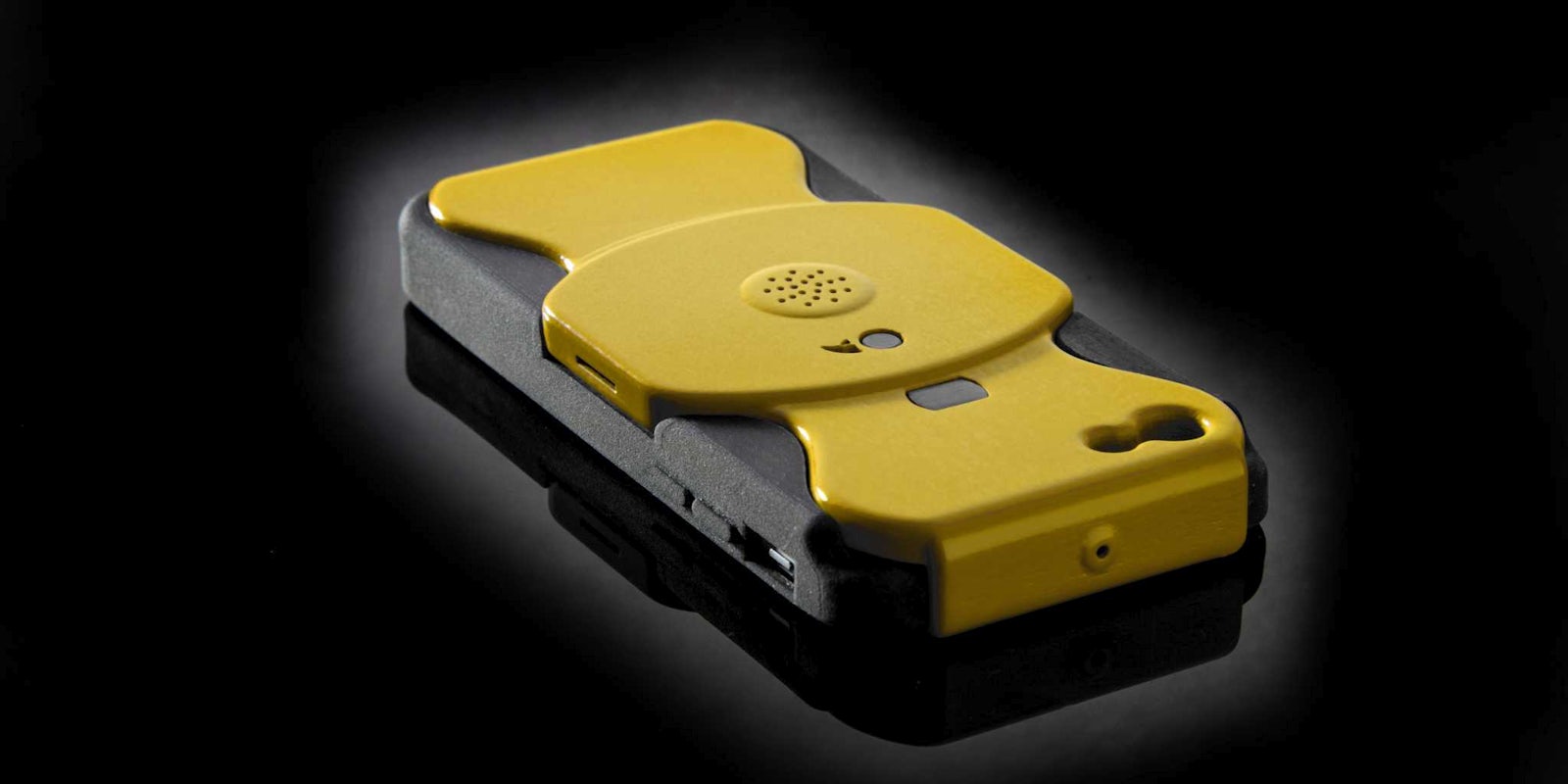Have you ever forgotten a conversation the second it’s over? A new iPhone case will keep a record of all of your calls so you don’t forget a thing—just make sure it’s legal in your state.
The Just in Case calls itself the “first and only recording case for the iPhone”—a claim that is likely true because it’s incredibly specific. The lightweight case built for the iPhone 5 and newer models protects the device while preserving calls to listen to later.
“When this idea first dawned on us, we were sure there had to be some built-in recording function on the iPhone and we just couldn’t find it,” Oshri Farhat, CEO of Just In Case, told the Daily Dot. “After researching for hours, we discovered that the only recording solutions available for iPhone are pay apps which require you to call an external server when you are ready to record, wait for it to be available, and then merge the calls.”
That’s primarily true—the vast majority of recording apps for iOS are on the clunky side. It’s a fine system when you know that you’re going to be recording, but it’s next to impossible to capture something in the moment without putting the call on pause and waiting for the recorder to start. And the apps have been known to fail from time to time.
Farhat said the apps require users to pay for the app and for each minute of recording, which might be true of some apps but assuredly isn’t the case for others, like the popular TapeACall.
Still, Just In Case only requires users to buy the case—which is set to retail for $60 after the IndieGoGo campaign that is currently running.
As soon as the “record” button is pressed, a built-in microphone placed near the speaker picks up the other end of the call while also getting the user’s voice. A tiny processor hidden inside the case, which Farhat said was “specifically selected to optimize voice recording,” converts the call to MP3 format and saves them to an included SD card for easy playback.
Listening back to calls can be done on the “high-end miniature speaker” built into the case itself, or by transferring files from the case’s SD card to a computer. There is no option for direct playback through headphones—and users aren’t able to record both sides of a call when headphones are plugged in. That might be a deterrent for anyone who doesn’t want to listen back to a call out loud or make a call with phone in hand.
There’s plenty of reason a person may want to record a call, be it for work or to provide a memory jolt. It’s especially handy when you need a record of what was said, like when speaking with customer service representatives. But some of those purposes are a bit more nefarious. For that reason, some states are wary of phone call recordings.
Eleven states in the U.S. require consent from every party involved in a call in order to make a recording lawful. Most others require only one party to be aware of the recording, but it’s worth checking those laws before using a device like Just In Case freely.
“The case is a separate device from the smartphone itself and is therefore just like any other multi-purpose recording device,” Farhat said. “The case will ship with a clear disclaimer that the user is responsible for clarifying his/her state’s law and adhering to it.”
While there are plenty of Android devices out there, Just In Case will remain focused on iPhone only. Farhat explained there just isn’t the same need for Android cases because, “on the Android OS there are a variety of fairly priced and simple-to-use apps that provide similar functionality at decent sound quality.”
That depends on the device you have and the operating system you’re running; compatibility with apps and phone functions can make your options considerably more limited. Likewise, the wide variety of device types makes it considerably more difficult to produce cases for Android devices with any sort of uniformity, whereas there are a limited number of iPhone forms to fit the case to.
Assuming Just In Case reaches its goal of $25,000—which it appears to be on pace to accomplish—the creators intend to get the devices into production by February and in the hands of early backers by May.
H/T Gizmodo | Photo via Just in Case


